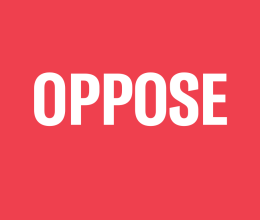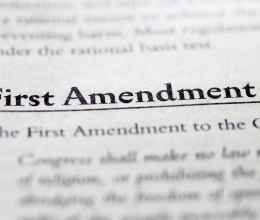A Strategic Lawsuit Against Public Participation (“SLAPP”) is a term for a legal action that is of little merit but is filed anyway for the purpose of stopping someone from engaging in (usually constitutionally protected) speech by burdening them with a costs of a lawsuit. In December of 2010, the D.C. Council passed, with our support, an Anti-SLAPP Act that provides a special procedure for people engaged in advocacy on public interest issues to have a court dismiss SLAPP suits quickly.
One of the provisions of the Anti-SLAPP Act limits the discovery (that is, court-ordered exchange of information among the parties in a lawsuit) that can occur when the Anti-SLAPP Act’s protections are invoked. This is because discovery can be costly and time-consuming, so that even speakers who should obtain dismissal of a SLAPP might be chilled from speaking in the first place if they knew they could be forced to undergo discovery before dismissal.
In this case, the D.C. Court of Appeals ruled that the discovery limitations of the Anti-SLAPP Act were invalid because they modified D.C. court procedures in a manner inconsistent with the D.C. Home Rule Act of 1973, by which Congress granted the District limited powers of self-government.
Together with many other public interest groups, we filed an amicus brief in support of reconsidering this decision, in the hope that the court will restore the discovery protections for speakers hit with SLAPPs.
For more information on Washington D.C.’s Anti-SLAPP Act, click on the following link: http://www.anti-slapp.org/your-states-free-speech-protection/
In January 2024, the court granted the petition for rehearing. In April 2024, we joined with other public interest groups once again to file an amicus brief on the merits discussing the importance of the Anti-SLAPP Act and its protections for public advocacy.



